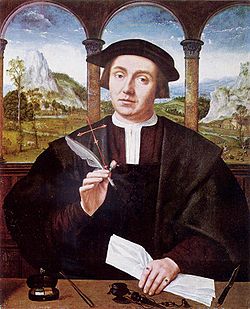![[yin yang]](bigyinyang.gif)

3, Sussex Terrace, Hawthorn, South
Australia 5062
Telephone: 0435 588 775
(International: + 61 435 588 775)
E-mail


Many Roman institutions, including the office of notary, survived the fall of the Roman Empire. There are records of notaries attached to courts of conquered Roman provinces, the Franks and the courts of Charlemagne. By the beginning of the 10th century, notaries had become court registrars, recording judicial proceedings (a notable example of which is The Helmasperger Notarial Instrument of 6 November, 1455) and drawing up private deeds. In medieval times, the emperors of Germany and the popes claimed the right to appoint notaries. Such appointments contained no territorial restrictions, i.e., notaries could practise their profession anywhere and their work was given universal recognition.
By the 12th century, notaries began to claim complete authenticity for their acts and instruments without the need for any imperial or judicial authentication. The ecclesiastical courts eventually accepted this claim and it became enshrined in canon (ecclesiastical) law. The result was that notaries eventually ceased to be dependent on judicial authorities and instruments bearing their personal signs or seals were given universal recognition.
Notaries were virtually unknown in England until the 13th century. In 1279, the Archbishop of Canterbury was authorised by the Pope to appoint notaries. Following the English Reformation, Parliament transferred this power to the Crown. The Ecclesiastical Licences Act 1533 ("An Acte for the exonaracion frome exaccions payde to the See of Rome") created a Court of Faculties, under the Archbishop of Canterbury, to appoint, and exercise disciplinary powers over, notaries. In 1801, Parliament passed the Public Notaries Act and thereafter the role of notaries was principally the preparation and authentication of instruments to be used abroad. The Court of Faculties still appoints notaries in Britain and in other parts of the Commonwealth where relevant local legislation does not exist.
In South Australia, the appointment and regulation of notaries public is governed by the Notaries Public Act 2016. The Act provides that a person admitted as a notary public "has all the powers and authorities (including the power to take affidavits) exercisable by law or custom by notaries public". A person who is entitled to practise the profession of the law in South Australia and has been admitted and enrolled as a legal practitioner in any state of Australia for at least 5 years, may apply to the Supreme Court of South Australia to be admitted and enrolled as a notary public. If the application is successful, the notary must swear the following oath:
The powers and functions of a notary are derived principally from longstanding custom and have never been defined by any statute in the common law world. The notary's function, in the broadest sense, is the verification of evidence of human activities. This is especially significant when such evidence must be produced in foreign jurisdictions. The English Lord Chancellor, Lord Eldon, observed in 1802 that "a Notary Public by the Law of Nations has credit every where" (Hutcheon v Mannington, 31 ER 1327) and this principle is now accepted universally. The most common function of a notary nowadays is the verification of documents intended to take effect in foreign jurisdictions. This is usually done on the document itself or by a separate notarial certificate attached to the document and by the affixing of the notary's personal seal of office. Other common functions are the authentication of copy documents, and the taking of affidavits, to be used in foreign jurisdictions.
Acknowledgement: Ready, Brooke's Notary (10th ed.), Stevens, 1988
See also "Notarial Practice" and "The Origin of The Notary's Seal"